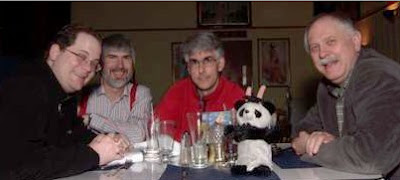What the heck is humanism? The short answer is ... I have no idea.
If someone tells me they're a humanist then I can guess that they have some kind of ethical standards that have nothing to do with religion but that's about all I can guess. They might as well have told me that they are an atheist and leave it at that.
Are humanists socialists? Do they all favor socialized medicine and support unions? Do they oppose the death penalty? Are they in favor of gun control and abortion on demand? Do humanists oppose the American war in Afghanistan? Did they support the invasion of Iraq?
Are humanists willing to vote for a Republican or a Conservative? How about a Communist? Do all humanists think gay marriage should be legal? Would they legalize prostitution and pornography? Would they legalize drugs like cocaine and marijuana? How do they feel about euthanasia?
Do humanists support a public school system or are some in favor of vouchers and private schools? Do they all have the same position on immigration? on welfare?
I don't know the answer to any of these questions. I don't know what it means to be a humanist.
Hermant Mehta thinks that Humanism tells us what he believes. Watch this video to see what that means.
Still confused? Go to the
American Humanist Association website and you'll be even more confused. Read the Humanist Manifesto and the essays by Fred Edwords. They don't answer any of the questions I asked.
















